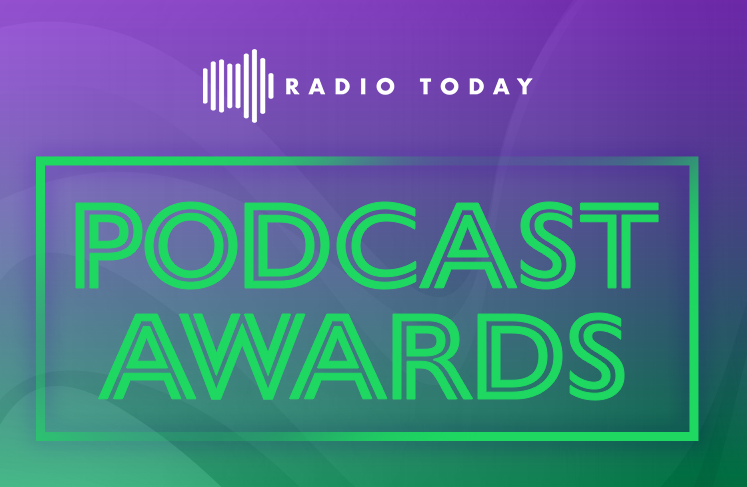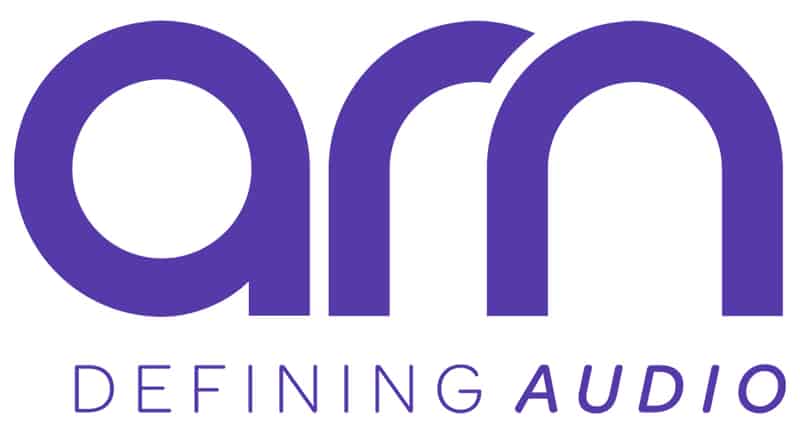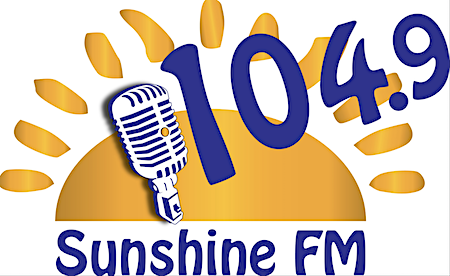Podcasting Today newsletter: February 2022

Articles from our Podcasting Today newsletter
February 2022
And just like that…
Feb 7
Joe Rogan has backed down over comments considered to be misinformation about Covid in a 9 minute video on Instagram. The backdown comes as podcast publisher Spotify faced growing pressure to rein in Rogan, which we explored last week in this newsletter.
A BBC fact check of 4 of the more outlandish claims made in Rogan’s podcast showed them all to be false and/or misleading, and 270 health professionals signed a protest letter at his factually incorrect comments, calling him a menace to public health.
Some of Rogan’s podcasts dealing with Covid have now been removed from Spotify, and join a list of others containing racial slurs that were removed during the height of the Black Live Matter movement.
Bloomberg has reported that the recent Covid episodes were removed by Spotify after mutual agreement with Rogan. Believe it or not, there is a website that keeps track of removed Joe Rogan episodes. You can check it here.
Last month Spotify toughened up its rules on Covid misinformation and this week Spotify CEO Daniel Ek addressed employees about the controversy in a 15-minute speech defending the company’s choice to work with Rogan, explaining its reasoning, and defining why he believes Spotify is a combination of a platform and a publisher.
The Verge obtained audio of the speech and quotes some of Ek’s comments where he argues the Facebook defence, that Spotify is not a publisher so does not need to take editorial responsibility for Joe Rogan.
“I understand the premise that because we have an exclusive deal with him, it’s really easy to conclude we endorse every word he says and believe the opinions expressed by his guests. That’s absolutely not the case… We’re defining an entirely new space of tech and media. We’re a very different kind of company, and the rules of the road are being written as we innovate. A publisher has editorial control over a creator’s content… Even though JRE is an exclusive, it is licensed content. It is important to note that we do not have creative control over Joe Rogan’s content.”
As the new boundaries for podcasting are being drawn there will be a delicate balancing act between potential censorship of legitimate viewpoints and preventing misinformation peddlers from hijacking the podcast platform to fuel disinformation and unrest.
Tanya Hennessey’s new podcast may not be as controversial as Joe Rogan, but she told our Radio Today Tonight podcast hosts Megan and Bray that she intends to push the boundaries of the medium to see what happens.
As an experienced radio broadcaster Hennessey will know the boundaries and where she can push them in the podcast medium. She is conducting an interesting experiment by introducing ‘talkback’ to her podcast. Well… really it is ‘message-back’ at the moment, fans can dial a number and leave a message to be played on the podcast. But it is not too much of a leap to then call those fans back and record a talkback conversation. In the new season of Sex in the City, called ‘And Just Like That,’ the Carrie Bradshaw character ends up doing just that in her podcast.
Podcast leads to cold case breakthrough
Feb 14
With crime podcasts being some of the most popular genres in Australia, according to podcast ranker results, it’s not surprising that the cold case podcast made by investigative journalist Adam Shand and the NSW Police State Crime Command has generated fresh information and a new follow up episode of an ongoing case.
The Lost at Sea podcast is published by LiSTNR. “The release of the podcast has led to a breakthrough piece of information,” said Shand.
Joe Rogan continues to generate controversy, with some episodes of his Spotify podcast being pulled from the platform and another podcast provider offering to give him ‘uncensored’ hosting and $100 million. We’re getting a bit sick of the Joe Rogan saga, but will force ourselves to keep covering it because it shines a spotlight into the nexus between controversial content, listenership and monetisation, as podcast publishers evolve their business models.
Podcast listening in regional Australia is lower than it is in metropolitan centres, according to research conducted for the Page Research Centre, analysed by radioinfo. The information comes in a wide ranging study of opinions about the ABC in regional Australia.
Last week Nova introduced two new podcasts, one covering film and tv and the other covering beauty, as the company continues to expand its collection of monetisable lifestyle topics.
Wherever you get your Podcasts
Feb 21
Comedian Mark Watson wonders when podcasters will stop saying “… or wherever you get your podcasts” in their tags, making the point that people know where to get podcasts now.
It’s like a butter advertisement saying “get it at the corner ship or wherever you get your butter.” No need. Everyone knows where to get butter… and podcasts now too.
Good point Mark!
Wonder when they’ll stop saying ‘…or wherever you get your podcasts’ and trust that people understand how to do this now, just as butter adverts don’t say ‘get it in a corner shop or wherever you get your butter’.
— Mark Watson (@watsoncomedian) February 17, 2022
While on unnecessary verbiage in podcast ads, here’s another one. “Tap the banner below…”
First, the banner is not always below the play window, sometimes its above and beside it. Second, what if I am listening but not watching my screen, I’m not seeing any banner above, below or anywhere. Leave it out and shorten your script length by one word.
Edison Research has published its American ‘Super Listeners’ research. The survey of 1000 heavy podcast listeners found significant increased in the number of people willing to pay for audio, from 49% in 2019 to 68% in 2021. The top 3 reasons for people to pay for their audio services are: More Control over Content, Exclusive Content no available on free services and To Hear Fewer Ads.
Half the people surveyed agreed that advertising on a podcast is the best way for brands to reach them.
Youtube is the top platform for podcast listening. Yes, you read that right, a video platform is the top platform to listen to podcasts. This is not surprising really, Youtube also consistently comes up in the top 3 platforms for people to listen to music, so it is well entrenched in the audio consumption landscape, for now. Spotify and Apple Podcasts are the second and third preferred listening platforms in Amercia, according to the study.
Interestingly, Facebook, Audible and Twitter also show up as podcast listening platforms as these companies see the growth of podcast listening as a way of increasing their audience and keeping audio consumers on their platforms longer, rather than have them transition to another platform when they feel like consuming audio.
The research presentation is available here.
With accuracy in podcasts becoming an issue for Joe Rogan, the ABC’s investigative series about Juanita Nielsen, and several others, it was good to see an ad for a Podcast Proofer recently. The job, at Wavelength Creative, which has now closed, shows that the company is taking editorial content seriously, making proof reading and fact checking an explicit part of their publishing process. Schwartz Media has also advertised for a Head of Audio, a job which explicitly seeks high editorial skills and judgement. Applications for that job , based in Melbourne, close next week. This is a sign of increasing professionalism in the Australian podcast industry.
If you missed it, you can hear Megan Pustetto talk about the death threats she has got while doing her podcast. She speaks to Megan and Bray in this week’s Radio Today Tonight podcast.
Evolving podcast business strategies
Feb 28
Film and television companies have evolved their offerings to the new consumer environment by differentiating their programming in a way that forms a specific brand image.
Broadcast TV channels originally had something for everyone and, when Youtube first appeared, its programming model was like many free to air tv stations with something for everyone.
When Foxtel came, then digital tv, opportunities opened up for new channels, which allowed tv companies to present differentiated programming option. 7 Mate targets males, 9’s Gem targets movie and entertainment consumers, 10 targets younger demographics and so on.
During the pandemic movie channels have evolved further, with Disney+ now delivering family movies and series on its own platform, and other specialist players such as Paramount+, Apple TV+, Binge and others building brand specific programming to rival the general OTT streaming services such as Netflix.
As well as free to air broadcast tv, we now have a video streaming over the top (OTT) landscape that has live and catch-up broadcast streams, plus advertising supported (AVOD) and subscription supported (SVOD) OTT services.
What’s all this got to do with podcasting? The tv and film model may give us a glimpse into how the audio world will shake out in coming years are companies buy, sell and consolidate.
Everyone who works in audio knows that they must offer a range of OTT audio products, but companies are still figuring out what that looks like within their businesses and how audiences will consume their offerings. Will this next iteration of audio follow a similar model as film and tv, or evolve differently?
Australia’s major audio companies are all experimenting to work out their business strategies for when the tipping point comes and they can count digital delivery as a significant revenue earner for their businesses. In conversations with the CEOs of some of Australia’s major media companies last week some substantial indicators emerged.
At the moment SCA’s digital audio revenue is about 5% of revenue, while broadcast audio brings in the 95% of income. But where audiences go, revenue follows. Speaking to radioinfo, Grant Blackley said that about 25% of live radio listening across the company’s portfolio of stations is coming from digital streams. That’s smart speakers in homes and audio apps when mobile.
Nine Entertainment’s Mike Sneesby also told radioinfo that a similar figure, about 25% of listening to Nine Radio, is now being done on smart speakers and apps. Sneesby also put it into perspective across the wider broadcast landscape, saying that a similar proportion, about 25% of viewing of Nine’s free to air broadcasts were also being consumed via streaming to Smart TVs.
Ciaran Davis also confirmed that a large percentage of iHeartRadio consumption is via streams of live broadcast radio channels.
If those figures are similar across other radio and tv networks in metro areas then a tipping point is on the way. Audio and video streaming consumption in non metro areas is lower than in the major cities, perhaps due to habit or perhaps due to slower internet speeds in regional Australia.
Mike Sneesby also commented that his company’s logged-in streaming consumers are more valuable to advertisers, because they can be more easily targeted.
And of course, when more people are consuming their audio via internet, there are more opportunities to offer them other products like podcasts, so this trend will undoubtedly increase podcast consumption too.
Will audio companies seek to differentiate their brands by the podcast programming they present, as is happening in the SVOD and AVOD video platforms?
It’s possible. In fact it may have already started.
Let’s play a game.
Go through the list of commercial podcasts in the Australian Podcast Ranker and try to group them by genre: crime, books, lifestyle, housing, DIY, fiction, health, parenting, comedy, politics, news, sport, etc. Then look at which companies are publishing which genres. Also look more widely, because the non commercial companies not tracked by the Podcast Ranker (ABC, SBS and smaller publishers), also have a strategy, which is developing consistently with their own public service broadcasting brand of trustworthy well researched content, or across many areas of interest to niche audiences by specialist publishers.
Is a pattern emerging?
It’s not entirely clear, but there does seem to be a pattern, where some podcast companies are zeroing in on preferred genres and creating a coherent stable of products that can be offered to audiences and advertisers.
As the big companies pick off high profile podcasts from the smaller production houses, we should see further evidence of a strategy behind their purchases. Some are gathering news, sport and current affairs genres. Others are chasing lifestyle topics, personalities and influencers. There are also a growing number of ‘helper advice’ subjects from gardening to personal wealth, and of course there is health, a growing genre during covid. SCA has just introduced fiction with audio book adaptations
It will be interesting to watch the big companies defining themselves by the podcasts they produce as the audience moves towards a tipping point.
In other podcast news, check out ARN’s research that busts the myth you can’t measure podcast effectiveness, and see more about LiSTNR’s first audio fiction offering.
If you are planning to enter this year’s Podcast Awards, the entry dates are now published here, giving you plenty of time to prepare.
The Podcasting Today newsletter is powered by LiSTNR.
Check out all our podcasting articles here.
Podcast Award details here.




